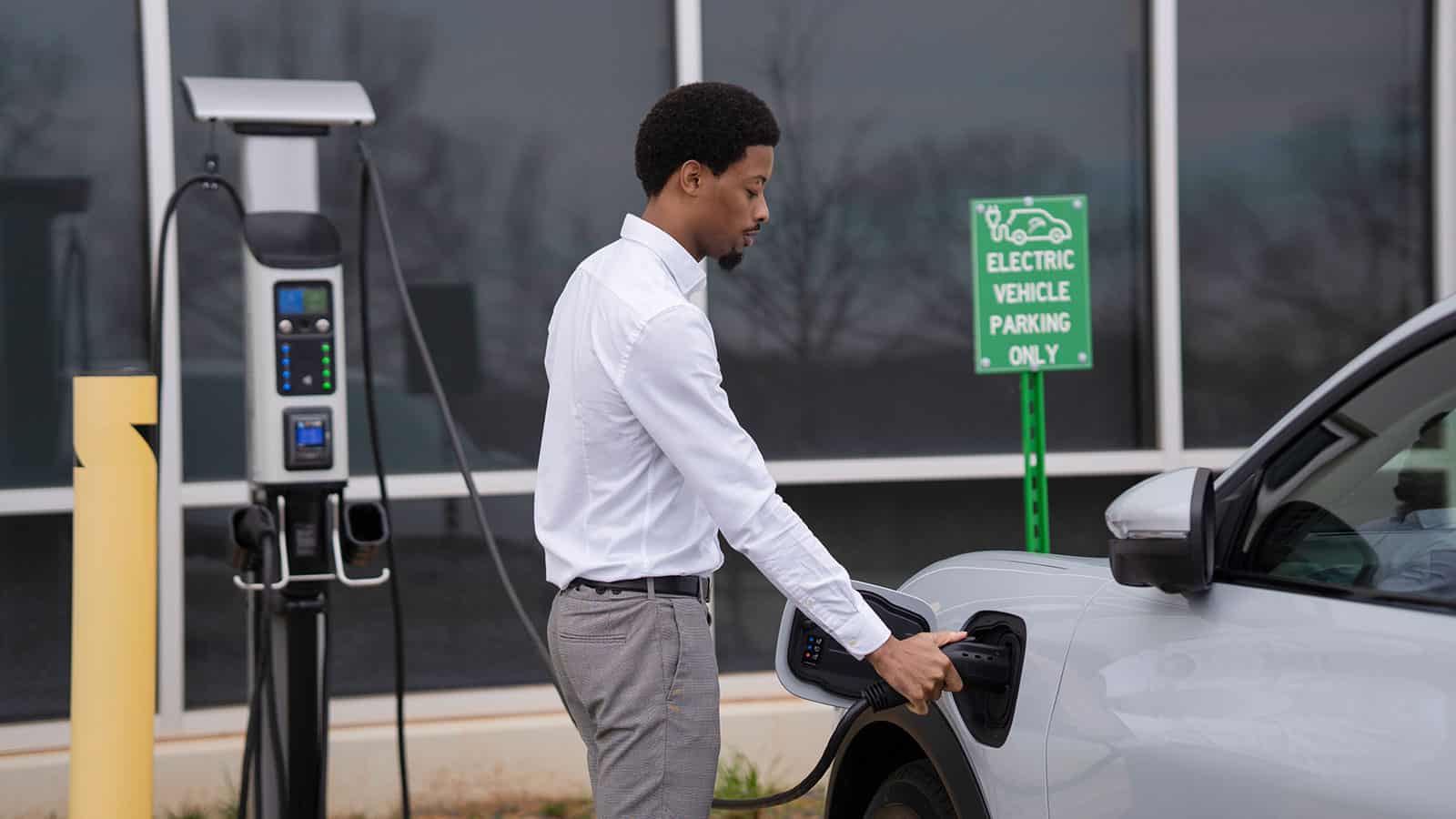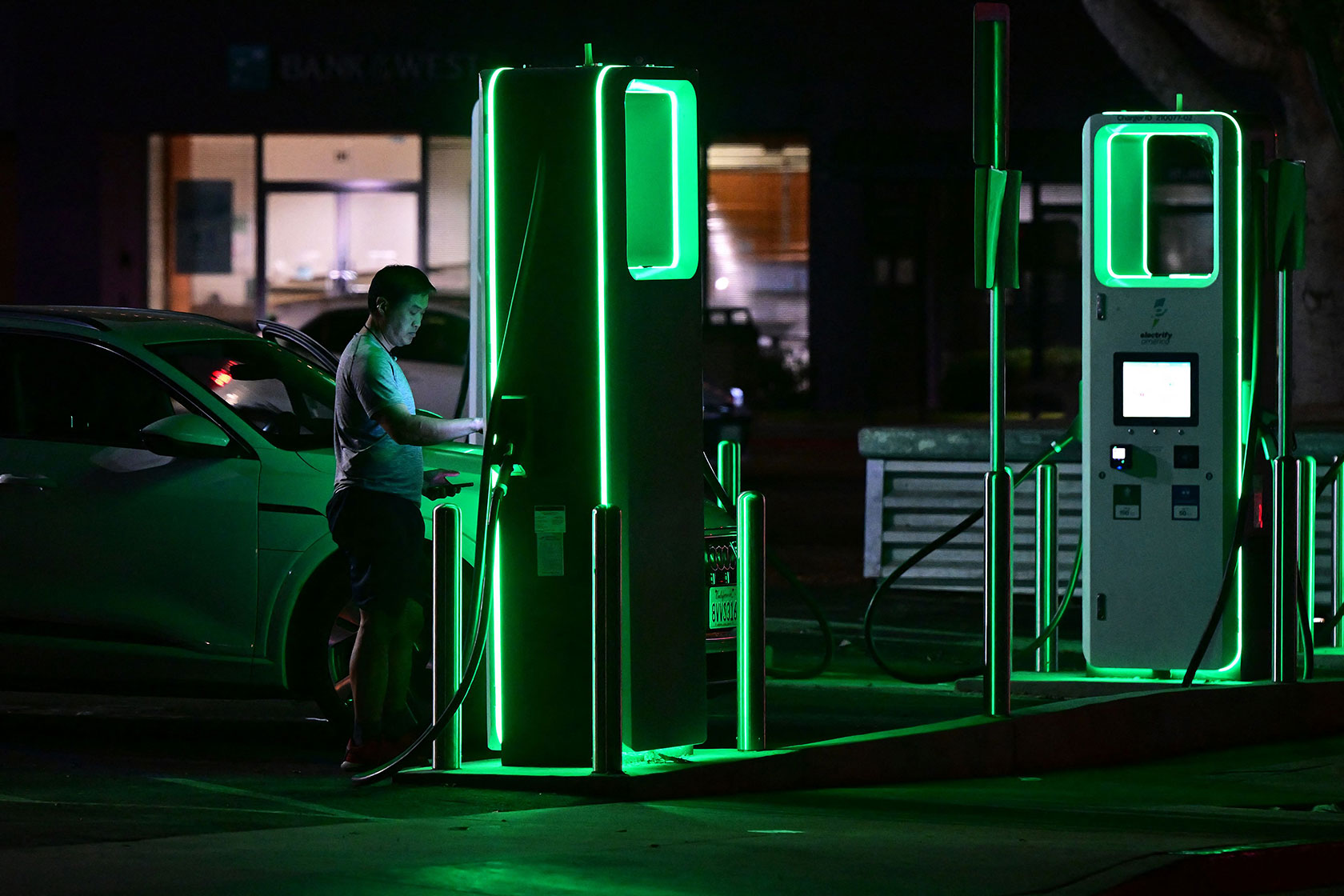New Dope in EV Charging: Just How the Sector Is EVolving to Meet Demand
As the electric vehicle (EV) market remains to expand, the charging infrastructure is undergoing significant changes to deal with the surging need. Trick growths in ultra-fast billing innovations, combined with wise grid integration, are reshaping the landscape. Advancements in battery innovation guarantee enhanced performance and sustainability. Nevertheless, the search of international billing requirements remains a crucial factor in making it possible for smooth user experiences and prevalent adoption. The effects of these developments increase vital concerns about the future of EV billing and its function in the more comprehensive energy ecosystem.
Growth of Charging Infrastructure
The fast growth of electrical lorry (EV) charging framework is an essential element in assisting in the widespread adoption of electric wheelchair. As federal governments, private companies, and customers increasingly recognize the value of lowering carbon emissions, financial investments accountable networks have risen. This framework development is vital to reduce array anxiety, making sure that EV customers have convenient access to billing stations.
Significant developments accountable terminal innovation and release approaches have actually arised. Urban locations are seeing a spreading of public billing terminals, while country regions are slowly being integrated into the charging network. Collaborations between automotive manufacturers and billing carriers are coming to be a lot more typical, promoting the establishment of thorough networks that improve individual experience and ease of access.
On top of that, the assimilation of renewable resource sources into billing stations is gaining energy, advertising sustainability in the EV environment. This shift not only sustains environmental objectives however also straightens with the increasing demand for environment-friendly energy solutions amongst consumers.
Ultra-Fast Charging Technologies
Ultra-fast billing innovations represent a substantial leap onward in the EV charging landscape, making it possible for electric vehicles to charge in a portion of the time contrasted to conventional billing methods. These technologies normally deliver power degrees exceeding 150 kW, with some systems rising to 350 kW or more, drastically minimizing charging times to as low as 15-30 mins for a substantial cost.
Key allowing technologies include innovations in battery chemistry, power electronics, and thermal monitoring systems. As an example, high-capacity batteries with improved thermal security permit faster charging without overheating. In addition, developments accountable framework, such as liquid-cooled cables and modular billing terminals, help with effective power transfer, boosting the total user experience
Significant auto manufacturers and innovation firms are actively purchasing ultra-fast charging networks, identifying the important function they play in conquering array anxiety and increasing the fostering of electrical cars. As these technologies end up being much more widely readily available, the EV market is anticipated to witness considerable growth, making electrical flexibility a more eye-catching alternative for customers. Overall, ultra-fast charging modern technologies are crucial fit the future of lasting transport, paving the means for an extra extensive and effective billing ecosystem.
Smart Grid Integration

Through need response strategies, wise grid systems can change charging routines based upon grid problems and power pricing. Throughout periods of high need, billing can be delayed to off-peak hours, resulting in reduced expenses for customers and decreased pressure on the grid. In addition, vehicle-to-grid (V2G) innovations enable EVs to release power back into the grid, enhancing and offering supplementary services grid security.
Combination with sustainable power resources better enhances the sustainability of EV charging. By lining up charging tasks with periods of high solar or wind generation, smart grids promote a greener billing framework. Ultimately, wise grid assimilation not only supports the expanding demand for EVs but also adds to a much more sustainable and durable energy future, positioning the industry for long-term success.
Battery Innovations
Among the quick development of electrical cars (EVs), battery advancements stand at the center, driving developments in effectiveness, performance, and sustainability. As the demand for EVs surges, scientists and suppliers are concentrating on improving battery modern technologies to deal with difficulties such as variety anxiousness and billing times.
Lithium-ion batteries continue to be the most commonly utilized modern technology, yet new materials and chemistries are arising to improve power thickness and long life. Solid-state batteries, for instance, guarantee greater power storage space capability and enhanced security by changing liquid electrolytes with strong ones. This shift could dramatically minimize the threat of fire and boost the lifespan of batteries.
Furthermore, advancements in battery reusing procedures are important for sustainability. Companies are establishing methods to recoup beneficial products like lithium, cobalt, and nickel from utilized batteries, promoting a round economic situation and decreasing environmental impact.

International Charging Specifications

Efforts are underway to develop global charging standards that facilitate compatibility amongst numerous EV designs and charging terminals. Organizations such as the International Electrotechnical Commission (IEC) and the Society of Automotive Engineers (SAE) are functioning collaboratively with automotive suppliers and energy carriers to produce detailed standards. EV Charging news. These criteria objective to enhance the billing procedure, lower the demand for numerous adapters, and improve customer experience
In addition, standardization can significantly bolster the expansion of the charging network, as it go now encourages financial investment by making infrastructure growth extra predictable and efficient. As the EV market matures, a unified approach to billing standards will certainly be essential for ensuring that customers can bill their lorries comfortably and dependably, consequently supporting the broader transition to lasting transport.
Final Thought
The electric automobile charging market is undertaking considerable makeover to deal with the rising demand for sustainable transport. Developments in billing infrastructure, ultra-fast innovations, clever grid integration, and ingenious battery solutions are critical in boosting user experience and operational effectiveness.
Urban locations are seeing a proliferation of public charging terminals, while country regions are gradually being integrated right into the billing network. Additionally, advancements in billing framework, such as liquid-cooled cables and modular charging stations, assist in reliable power transfer, boosting the total user experience.
Generally, ultra-fast billing technologies are critical in forming the future of lasting transport, leading the way for a more substantial and reliable visit their website charging ecosystem. - EV Charging news
By aligning charging activities with periods of high solar or wind generation, smart grids my response promote a greener charging infrastructure.Efforts are underway to establish global billing standards that facilitate compatibility amongst various EV models and billing terminals.